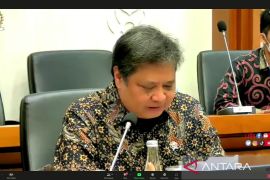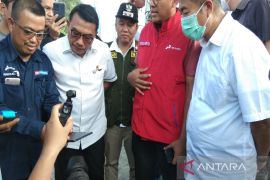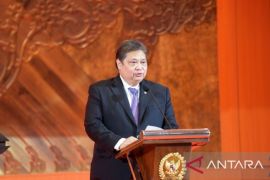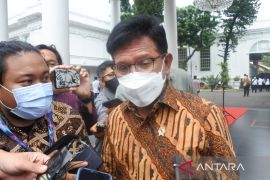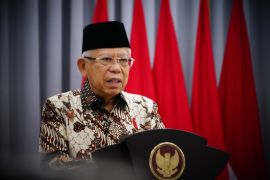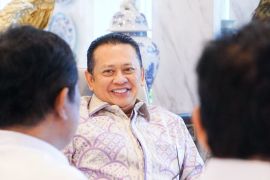The fiscal policy adopted by the government was not enough to prop up the sagging rupiah and drive the economy lately following the cut in the oil fuel subsidy, Chairman of the Economic Study and Development Kadin Didik J Rachbini said.Jakarta (ANTARA News) - Lack of confidence of business players and investors in the government policy was behind the crisis in the exchange rate of the country`s currency, an economist said.
Chairman of the Economic Study and Development of the Indonesian Chamber of Commerce and Industry (Kadin) Didik J Rachbini said Indonesia attracted many investors but the government fiscal policy failed to win the confidence of the investors and business players.
Didik said the fiscal policy adopted by the government was not enough to prop up the sagging rupiah and drive the economy lately following the cut in the oil fuel subsidy.
He said deficit in primary balance rose from Rp40.1 trillion to Rp111.7 trillion and the state revenue target dropped from Rp1,529.7 trillion to Rp1,502 trillion.
"This shows fiscal room is narrowing as a result of large imports which causes a cut in foreign exchange reserves," he said addressing a discussion titled `Causes of Crisis in Exchange Rate and Impact on National Economy,` here on Friday.
He said the tax ratio fell from 12.87 percent to 12.21 percent, budget deficit ratio to GDP widened from minus 1.65 percent to minus 23.8 percent.
Meanwhile, the portion of energy subsidy rose from 23.8 percent to 25.1 percent, but on the contrary capital spending fell from 16 percent to 15.7 percent and utilization of budget fund until May 2013 reached only 31.4 percent with realization of capital spending at 13.8 percent.
The country`s trade deficit from January to May , 2013 totaled US$2.5 billion.
"The deficit showed pressure from imports because of trade policy being not right," he said.
In exports, coal is the main commodity accounting for 17.2 percent of export earning , followed by vegetable oil accounting for 13.3 percent, textile and textile products 8.2 percent , electric equipment , photography , etc. accounting for 7.3 percent.
He said fiscal policy should not be made on political motivation ahead of the general elections in 2014 by sacrificing the interest of the people.
Earlier Chief Economics Minister Hatta Rajasa said he was confident the general election which will cost around Rp17 trillion would contribute to economic growth.
"The impact would tremendous to drive onward the economic development," Hatta said.(*)
Editor: Heru Purwanto
Copyright © ANTARA 2013

